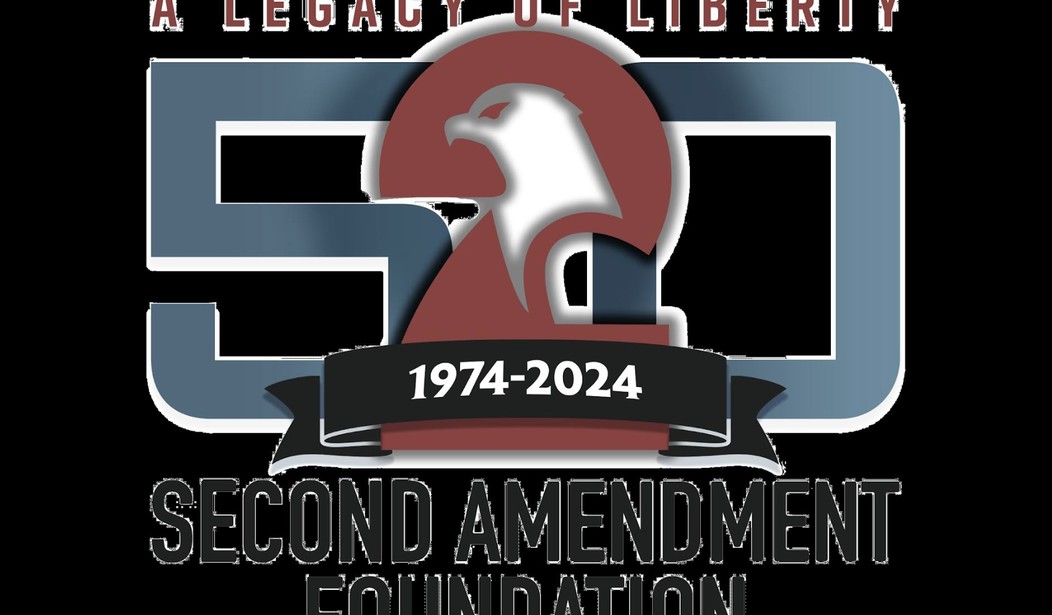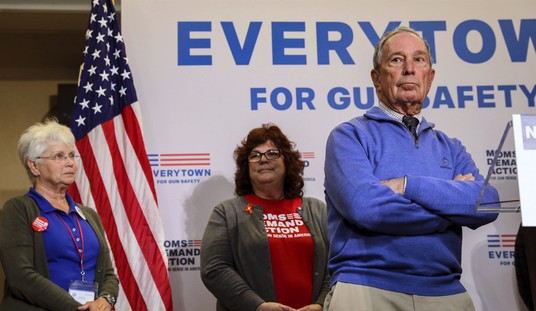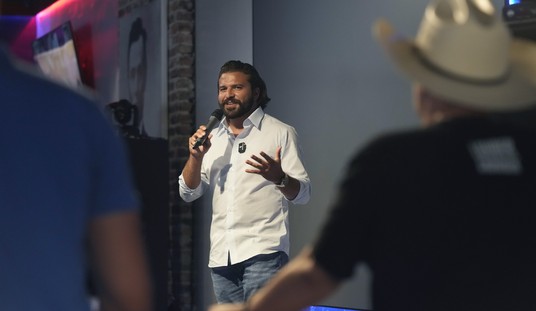On August 26, 2024, the Second Amendment Foundation will be celebrating its 50th anniversary. In honor of this important civil rights organization, I’m going to be putting out a five-part weekly series about SAF, leading up to the 26th.
This first part of the Second Amendment Foundation 50 Years celebratory series will be focusing on the founding of the organization, the early years, and the past.
The Second Amendment Foundation was founded by Alan Merrill Gottlieb in 1974. Coming at the heels of Gottlieb committing to the rebranding of and taking stewardship of the Citizens Committee for the Right to Keep and Bear Arms only three years prior, SAF was formulated. CCRKBA is a 501C(4) group, and Gottlieb saw the potential in being able to be involved in judicial activism, Second Amendment scholarship, and education in grassroots activism, with a 501C(3).
Gottlieb opened up about the aim and inception of SAF in the forward of “Taking Aim (At Those Who Threaten the Right to Keep and Bear Arms): The Second Amendment Foundation's 30-Year Battle Against Gun Control,” by Anton Bird. “I founded the Second Amendment Foundation in 1974 as a tax-exempt Washington State non-profit corporation organized under the 501 (c)(3) provision of the IRS tax code because I felt there was an opportunity to create an organization that would someday be a pioneer and innovator in realm of defending the right to keep and bear arms,” Gottlieb penned. “And a pioneer and innovator, I'm proud to report, we have become.”
Gottlieb stating that the organization became a “pioneer and innovator” 20 years ago was really a “hold my beer” kind of moment. The foundation that was built and the plans that were put into motion the first 30 years of the group allowed for some of the most meaningful work to occur behind the scenes and in the forefront of this civil rights battle these last two decades.
I had a chance to chat with Gottlieb one morning in April a bit about SAF, its founding, and celebrating the 50 years of service the organization has given the Second Amendment community. “It was sort of in the founding, to start with a long-range game plan,” Gottlieb said. “But it wasn't just scholarship...”
It was angling it more in the legal area. But of course, we were doing a lot of research and publishing, just in general for gun rights to begin with. When we first started, the long range plan, or the dream was…to one day get a case to the United States Supreme Court. And back then in 1974, you have to realize that there was only really one major gun rights case in the country. And it wasn't in federal court or state court.
In 1976 while attending CPAC, Gottlieb met Julianne Hoy Versnel. Versnel’s current positions at the foundation are vice president of international outreach and special assistant to the executive vice president.
Versnel told me that after they met, she packed up, and moved to Washington state to work for the foundation. At the time, she was hired and tasked with getting SAF set up and going. The organization was in its infancy in 1976.
“I was working in Washington D.C. for another non-profit. SAF had decided that they were going to become active and I was happy to leave my employment in D.C. and sublet my apartment,” Versnel candidly told me. “I left everything except for some clothes, and said I would come out here for three or four months.” Versnel said that she set up SAF’s office spaces and since July 3, 1976, the date she left the district, she’s been with the foundation ever since.
The many successes and failures of the group’s 50-year history can’t be summed up in just one article or even a small series of articles. There’s no denying that the Second Amendment Foundation, its employees, officers, and board members have made a giant and positive impact on the advancement of our civil liberties.
One of the things that the six employees from the foundation that I interviewed nearly all agree on, is that there was one important moment in history that could be considered its biggest achievement to date.
Adam Kraut, SAF’s executive director, when asked about their biggest accomplishment to date, observed, “There's a number to choose from, I think the one that's probably the most impactful however, that's easy to point to is certainly McDonald versus City of Chicago, which was a Second Amendment Foundation case.” Kraut continued, “Of course, that's the case that incorporated the holding in Heller against the states, and the reason that we're able to sue all these states and local municipalities for Second Amendment violations.”
The director of legal operations of SAF, Bill Sack, parroted some of the sentiments that Kraut had. “If I had to pick a singular litigation win, I think the obvious choice is McDonald vs City of Chicago, in which SAF was a plaintiff,” Sack noted. “It really laid the underpinning for all of, nearly all of the litigation that we see in the Second Amendment space today.”
“I'd be remiss in not pointing out the Supreme Court win and McDonald versus City of Chicago,” Lauren Hill, SAF’s senior vice president said when asked about SAF’s biggest accomplishment. “A Supreme Court win is something that changes the whole playing field and it was significant in the promotion of Second Amendment rights in the United States.”
Gottlieb and I talked quite a bit about the Heller case, which preceded McDonald. Heller was not a SAF case, however, SAF did file an important amicus brief in the case. That amicus brief was summarized in Volume 20 of “Journal on Firearms & Public Policy,” in a paper by Ilya Shapiro.
Every permutation of the “militia only” interpretation of the Second Amendment leads to obviously absurd results. The purpose of the Second Amendment is to prevent Congress from using its powers, including its authority to regulate the militia, to disarm citizens. The purpose of the Second Amendment incudes protection of the fundamental natural right of self defense against criminal violence.
Prior to Heller being granted certiorari by the Supreme Court, Gottlieb recounted to me a story about being at a conference in Nuremberg, Germany, with Justice Antonin Scalia. Gottlieb said that was the day the District Court decision came down on Heller. While Scalia wasn’t speaking specifically about that case, Gottlieb said that they used to “talk a lot about the philosophy of the Second Amendment.”
“Alan, it takes five votes to win a case at the Supreme Court. But it only takes four votes to hear it. If we don't have five votes to win it, there won't be four votes to hear it,” Gottlieb said Scalia explained the certiorari process to him.
“So when the Supreme Court took the case, I knew at that point, we're in pretty good shape.” – Alan Gottlieb on Heller being granted certiorari
When I brought up the McDonald case specifically, Gottlieb intently listened to me as I labored my way through my question. A beat or two after just saying “McDonald,” Gottlieb’s face lit up and he smiled. It was a checkmate smile.
“What's interesting is that because we knew…we were pretty sure of course, we were going to win Heller. So, we pre set up McDonald ahead of time and the day they won the Heller decision, that same day, we filed the McDonald case. McDonald versus City of Chicago…to help get the Second Amendment incorporated…So that we’d be able to overturn state and local gun laws.” – Alan Gottlieb on filing McDonald
The win in McDonald came and acted as a bridge between Heller and the rest of the People. Without that decision, millions upon millions of United States citizens and legal resident aliens from progressive strongholds would not have been able to begin the process of being repatriated with their rights.
A long-time employee of SAF and current editor-in-chief of TheGunMag.com, Dave Workman talked about McDonald. “We came literally from out of nowhere back in 2010, with McDonald and just slapped a bunch of people upside the head, really, with a legal brick, I think the gun control crowd wasn't really ready for that one yet,” Workman said. “And I think the closest estimate that we have come up with is that SAF is responsible for about 80% of the positive case law that has come down on Second Amendment gun rights issues.”
There’s no doubt that the McDonald case is one of the biggest achievements of SAF and gun rights advocates throughout the country. There were many battles that SAF fought for them to “literally [come] from out of nowhere back in 2010.” By the time McDonald was decided, it was 36 years of hard work for SAF to become an overnight success.
The Second Amendment Foundation is celebrating their 50th anniversary all year. But, they’re really showcasing and coming together at their annual Gun Rights Policy Conference. This year’s GRPC is being held in San Diego, Calif. September 27th through the 29th. For more information about the upcoming GRPC, head over to saf.org/grpc/, I hope to see you there!
If you’d like to tune into part one of a three-part video series on the Second Amendment Foundation produced for this article series, you can check out that video HERE or in the embed below.
Also, be sure to check out next week’s article, “Second Amendment Foundation 50 Years - Alan Gottlieb, Executive Vice President,” which is slated for publication on August 5th, 2024.








Join the conversation as a VIP Member